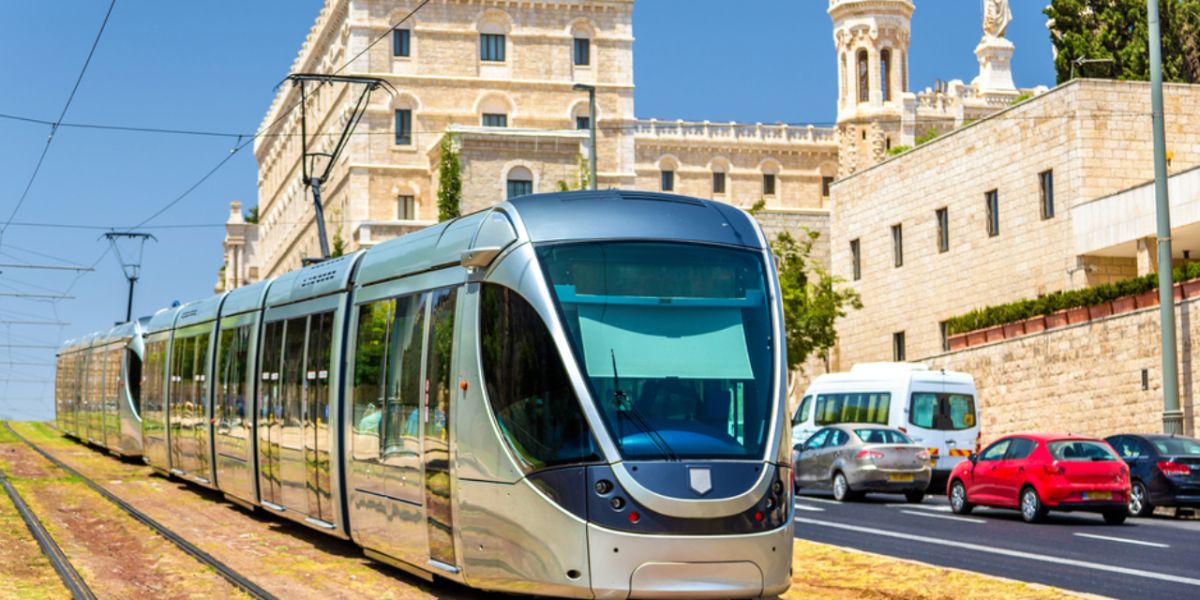
Israel boasts a well-functioning public transportation system that allows people to travel and reach any destination they want, whether they have a private vehicle or not. This system covers everything from the tiniest kibbutz to the largest city, spanning from the northernmost to the southernmost parts of the country.
Domestic flights in Israel
The country's flights are primarily restricted to the route between Tel Aviv and Eilat, with an average of 6 daily flights in each direction. While Haifa, the largest city in the northern part of the country, does have an airport, it mainly caters to a few international flights to nearby places and doesn't offer any domestic services.
Israel's central hub for air traffic is situated close to the city of Lod, between Tel Aviv and Jerusalem, and is known as Ben Gurion International Airport. In 2021, this airport welcomed nearly 7 million passengers, facilitating more than 75,000 commercial flights. As the primary entry point, Ben Gurion Airport plays a significant role in connecting people to Israel.
Trains in Israel
Trains are also a popular means of transport. The train fares are fixed and vary according to the distance covered; for instance, a journey of 75 km costs about 24 shekels, which is approximately 6 euros. Given the relatively compact distances within the country, trains offer a highly convenient, comfortable, cost-effective, and time-efficient way to travel. This is particularly important because roads in Israel frequently experience congestion, and the train is an excellent way to escape traffic jams.
The rail network, on the other hand, does not cover the entire country. Numerous cities in the north are linked, with the majority in the central region and even Jerusalem in the east. Yet, in the southern area, the train service halts at Dimona, located 208 kilometers north of Eilat – the country's southernmost city – serving as the entry point to the Sinai desert and Egypt. As a result, reaching this city, which holds a significant status in Israeli coastal tourism, can only be accomplished by air or road.
Israel's bus network
Buses have long been Israel's primary means of public transport, and, to this day, they remain essential to the country's mobility. Buses offer a comprehensive reach, allowing you to access various destinations, and the fare rates are quite affordable. Intercity bus services commence and conclude their routes at central bus terminals in most cities. In Tel Aviv, specifically, there are two prominent intercity bus terminals: the central station, Tahana Merkazit, in the southern part of the city, and the Arlozorov station in the northern region.
The primary bus service providers are Egged and Dan. While Dan exclusively serves the Tel Aviv area, smaller companies manage several secondary routes, although their coverage is typically entirely restricted. On the other hand, Egged, a cooperative established in 1933, predating the formation of the State of Israel, offers comprehensive coverage spanning the entire country.
The streetcar in Israel
Happy are those who live in Jerusalem as the city boasts a tramway line traversing west to east. Other lines are under construction and should open in the coming months or years. Likewise, Tel Aviv is on the brink of inaugurating its inaugural tramway line, and there's also an ongoing project for a metro system.
Shared cabs in Israel
In certain cities and along intercity routes, an alternative option is available: shared cabs or sheruts. These are minibuses shared by 8 to 10 people. Typically, the fare matches that of the bus. The driver waits until all seats are occupied before setting off. Shared cabs offer the benefits of adaptable schedules and swifter travel; furthermore, unlike buses – which, except in Haifa, halt service from Friday afternoon, a few hours before sunset, until Saturday evening, about an hour after sunset – shared cabs operate every day of the week.
In Tel Aviv, you'll also find “local” shared cabs that align with specific bus routes but have the added convenience of stopping wherever passengers request, rather than just at designated bus stops. Once again, their exceptional flexibility in timing and location stands out as a major advantage.
These transportation options share a common payment method: the Rav-Kav card. This card is obtainable from various outlets, including phone stores, grocery stores, and bus and train stations. It must be validated every time you board a bus or enter/exit a train. Recharge stations for these cards are conveniently situated throughout the area, near bus and tram stops (in Jerusalem, and soon in Tel Aviv). Additionally, you can recharge them using the Rav-Kav mobile application on your smartphone.
As everywhere else, you can also travel by private cab (taxi) in Israel. Intercity fares are quite expensive, but less so within the cities. You can conveniently book and pay for cabs through the Gett app, which many drivers are affiliated with. By relying on app-based calculations for the route, tourists or newcomers can avoid concerns about the driver trying to inflate the fare. Nonetheless, you can also flag down a taxi on the street or locate one at a taxi stand.
Electric scooters in Israel
In the present day, the three prominent cities of the country – Tel Aviv, Jerusalem, and Haifa – offer their individual systems of rentable electric scooters, overseen by different apps like Bird, Lime, Wind, Tier, and more. Users of these electric scooters are obligated to wear a helmet while riding.
Owning a car in Israel
Finally, the private car is the means of transport that enables you to get anywhere in the country independently. You can rent a car through major rental agencies, as they all have a presence in Israel, or you can utilize car-sharing platforms like Share. Regarding navigation in Israel, the most effective GPS app is Waze, a collaborative application developed in the country. It has demonstrated superior accuracy and dependability compared to Google Maps for navigating Israel.
Caution:
While hitchhiking was once a safe way to get around the country, it is now strongly discouraged for security reasons.
Plan your journey in Israel
The Moovit app enables you to meticulously plan your trips in advance or on the go to match real-life scenarios closely. This app presents routes and transportation options for specific journeys based on the selected date and time. If you're considering using public transportation, having the Moovit app downloaded is highly recommended.
We do our best to provide accurate and up to date information. However, if you have noticed any inaccuracies in this article, please let us know in the comments section below.








